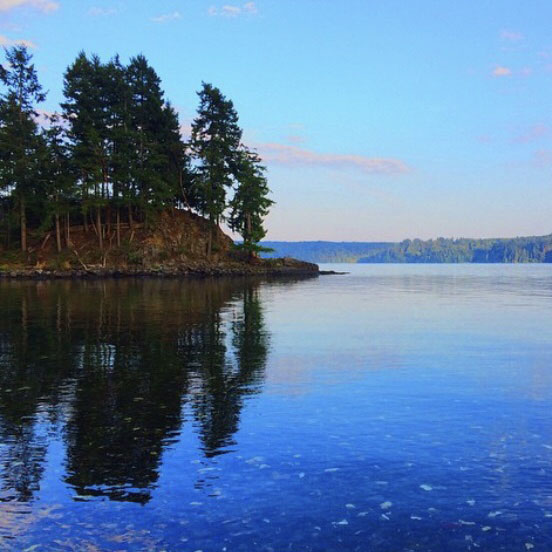Saving the Earth, one day at a time

Photo courtesy of Molly Haynes
Waterways such as the picturesque Hood Canal in Washington State remain stunning natural retreats in an increasingly urbanized world. Nevertheless, such natural spaces are besieged with harmful litter such as plastic bags and water bottles, serving as a poignant reminder of humanity’s duty to protect the environment.
March 9, 2018
People need to learn to respect their mother… mother Earth that is. Our magnificent planet provides us with its resources and beauty, and how do we repay it? By polluting it and not treating it right.
The three R’s (reduce, reuse, recycle) have been thrown to the wayside, even at WS. Although there are various bins around the school and in classrooms that are dedicated to recyclables, at the end of the day their contents end up in the same place as the trash, the landfill. Although it only takes paper products two to six weeks to decompose we could easily be saving space in landfills for items that are unable to be recycled.
Plastic, however, is a totally different story. It can take up to one thousand years for a single plastic bottle to decompose. Obviously none of us will be around then, but shouldn’t it be a priority to preserve the Earth for future generations?
Even if you are unconcerned with how the world will be in thousands of years, there are plenty of things that have immediate impact. Littering for example. Oftentimes, because of littering, plastic doesn’t even make it into a landfill. This is almost always due to the laziness of certain individuals who do not wish to walk an extra few feet to put it into a trash or recycling bin.
These plastic products that are carelessly thrown onto the ground end up in the oceans and other bodies of water for unsuspecting marine animals to ingest. Some even get fatally caught in plastic. I’m sure everyone remembers Lovelace from Happy Feet and how he nearly died because he got caught in plastic. Next time you’re about to litter, think of the clairvoyant penguins you could be murdering. It isn’t that difficult to hold onto your bottles and wrappers until you are near a trash can. Just keep in mind, if you litter you are trash.
Refraining from throwing your garbage anywhere that isn’t a trash can is not a hard task and it can really benefit the environment, keep our world clean, and potentially save the lives of penguins and turtles everywhere.
Earth Day comes and goes every year, but being kind to our planet should be something done daily, not simply once annually. The earth is really not ours, we are just borrowing it, so we need to start treating it with the utmost respect.




